Representatives from Albania, Kosovo*, Montenegro and North Macedonia, delegates from the Riparians in the Drin Basin, visited the Mekong River Basin in September, under the Global Environment Facility (GEF) Drin Project, executed by the Global Water Partnership – Mediterranean (GWP-Med).
The goal was Drin River partners to share with and learn from Mekong River colleagues holding substantial experience on shared water resources management; The Mekong River Basin is one of the world’s great river systems, flowing 4,909 km through six countries: China, Myanmar, Thailand, Lao PDR, Cambodia, and Viet Nam.
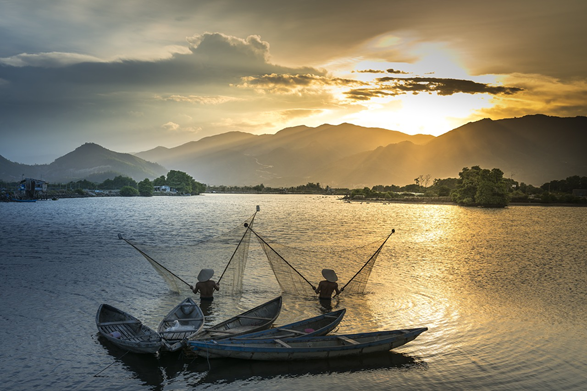
Photo credit: Quangpraha, Pixabay
The trip was an important learning exercise which allowed participants to discuss the challenges of managing transboundary river basins and share on applicable solutions for addressing these issues. The delegates visited the Mekong River Commission (MRC), the regional inter-governmental agency established for the sustainable development of water and related resources in the Mekong River Basin and had the opportunity to learn from an institution that is well established since1995.
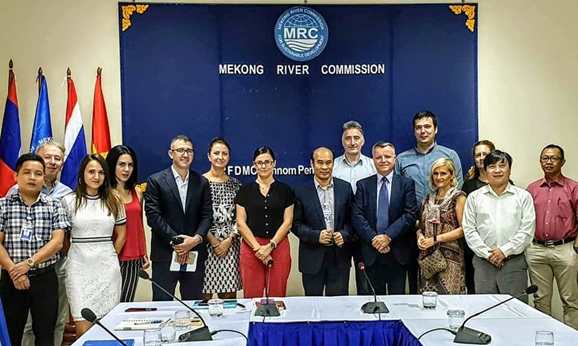
Members of the Drin Core Group, Expert Working Groups and GEF Drin Project Coordination Unit made up the delegation on the Study Visit to the Mekong River Commission. Photo Credit: MRC
15 participants, comprising members of the Drin Core Group, Expert Working Groups and GEF Drin Project Coordination Unit, attended meetings throughout the Mekong Basin, starting with a visit to the Mekong River Commission Secretariat located in Vientiane.
Here, delegates were introduced to how the Mekong River Commission is set up and functions, the Official Agreements that guide River Basin Management Strategies in the Basin and the Commission’s approach to public participation.
Drin delegates had the opportunity to share their experiences with the Mekong Commission on challenges in data exchange, climate change adaptation and flood mitigation in their respective Basins.
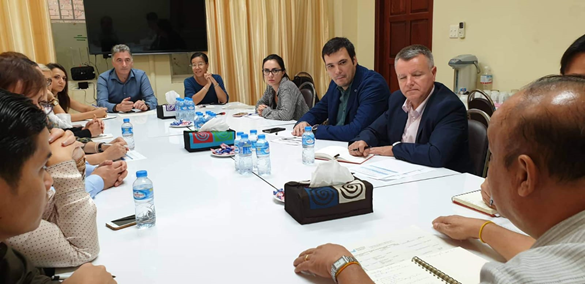
Photo Credit: MRC
To understand how these activities are implemented at a national scale, the Study Visit took delegates to meet the Lao National Mekong Committee Secretariat (LNMCS) in Lao PDR, followed by a site visit to the Mekong- Hydro Meteorological Cycle Observation System (HYCOS) station, which aims to improve flood and drought forecasting and data application for fisheries, agriculture and navigation.
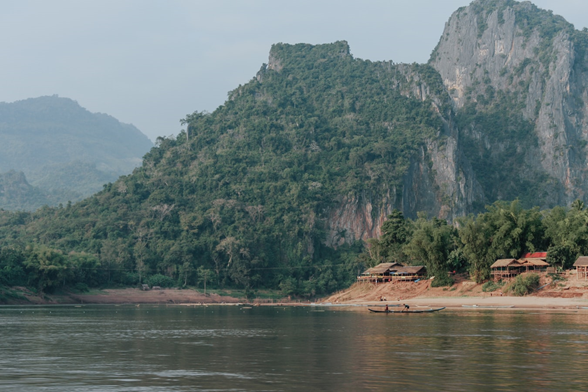
Photo credit: Christine Wehrmeier, Unsplash
After a day of travelling, the participant’s next stop was in Cambodia, where they met the Tonle Sap Authority in Phnom Penh. The Tonle Sap Lake is the largest freshwater lake in Southeast Asia facing many similar challenges to Lake Ohrid, Lake Prespa and Lake Skadar/ Shkodër in the Drin Basin.
Described by a participant as an 'outstanding experience and networking opportunity', the Mekong River Commission Study Visit demonstrated the value of sharing experiences with colleagues facing similar water challenges, at a time that the Drin collaboration advances to further concretes. Hearing from experts in another part of the world provided a fresh perspective on how to address these issues.
More information about the Mekong River Commission can be found here: http://www.mrcmekong.org/
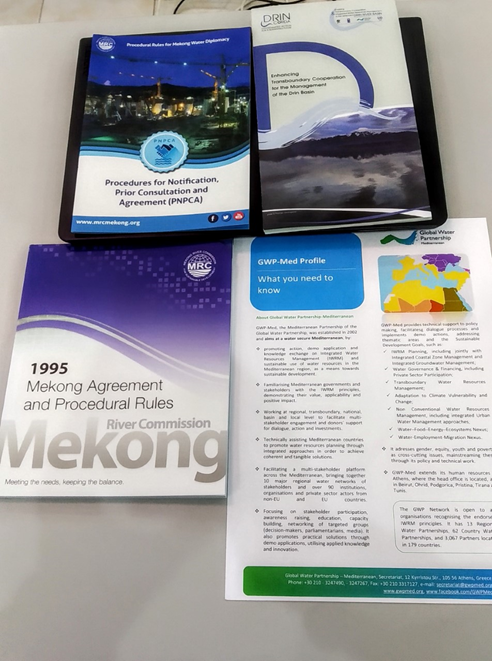
Notes
*All references to Kosovo are made in the context of UN Security Council Resolution 1244 (1999)